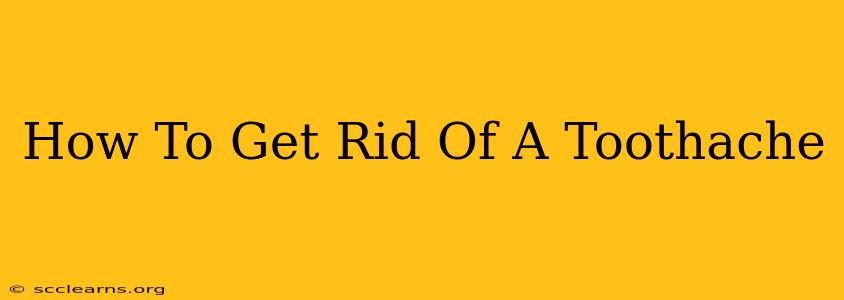A toothache can be excruciating, making it hard to eat, sleep, and even concentrate. While a trip to the dentist is ultimately necessary for proper diagnosis and treatment, there are several things you can do at home to ease the pain until you can get professional help. This guide will walk you through effective home remedies and highlight when it's crucial to seek immediate dental care.
Understanding Your Toothache
Before diving into remedies, it's important to understand the potential causes of your toothache. Common culprits include:
- Cavities: These are holes in your tooth enamel caused by bacteria, leading to infection and pain.
- Abscesses: A collection of pus at the root of a tooth, usually caused by a severe infection. This is a serious condition requiring immediate dental attention.
- Gum disease (periodontitis): Inflammation and infection of the gums can cause significant pain.
- Cracked or chipped tooth: Trauma to the tooth can lead to pain and sensitivity.
- Loose fillings or crowns: These can expose the sensitive dentin underneath.
- Teeth grinding (bruxism): This can cause jaw pain and tooth sensitivity.
Home Remedies for Toothache Relief
While home remedies can provide temporary relief, they are not a replacement for professional dental care. They can help manage pain until you can see a dentist.
1. Saltwater Rinse: A Classic Remedy
Dissolving a half-teaspoon of salt in a glass of warm water and rinsing your mouth gently several times a day can help reduce inflammation and kill bacteria. The salt's antiseptic properties can soothe irritated gums and temporarily alleviate pain.
2. Cold Compress: Reducing Swelling and Pain
Applying a cold compress to the affected area can help numb the pain and reduce swelling. Wrap some ice cubes in a thin cloth and apply it to your cheek for 15-20 minutes at a time, repeating as needed. Never apply ice directly to your skin.
3. Over-the-Counter Pain Relief: Temporary Pain Management
Over-the-counter pain relievers like ibuprofen (Advil, Motrin) or acetaminophen (Tylenol) can help manage the pain. Always follow the dosage instructions on the packaging. Note: Aspirin should be avoided as it can thin the blood and complicate any necessary dental procedures.
4. Clove Oil: A Natural Analgesic
Clove oil has natural analgesic and antiseptic properties. Dab a small amount directly onto the affected tooth using a cotton swab. Use cautiously, as it can be potent and may cause irritation in some individuals.
5. Peppermint Tea Bags: Soothing Inflammation
Steep a peppermint tea bag and allow it to cool slightly. Apply the cooled tea bag directly to the affected area for 15-20 minutes. The menthol in peppermint can have a numbing and soothing effect.
When to See a Dentist Immediately
While home remedies can provide temporary relief, certain situations require immediate professional attention:
- Severe pain: Intense, throbbing pain that doesn't respond to home remedies.
- Swelling: Significant swelling of your face or jaw.
- Fever: A high fever accompanies your toothache.
- Difficulty swallowing or breathing: These indicate a serious infection.
- Pus: Noticeable pus around the affected tooth or gum.
Ignoring a severe toothache can lead to serious complications, including infection spreading to other parts of your body. Don't delay seeking professional help if you experience any of the above symptoms.
Preventing Future Toothaches
Good oral hygiene is key to preventing future toothaches. This includes:
- Brushing twice daily: Use a fluoride toothpaste and brush gently for at least two minutes each time.
- Flossing daily: Remove food particles and plaque from between your teeth.
- Regular dental checkups: Visit your dentist for regular checkups and cleanings.
- Healthy diet: Limit sugary and acidic foods and drinks.
By following these preventative measures and knowing when to seek professional help, you can keep your teeth healthy and avoid the pain of a toothache. Remember, your dentist is your best resource for maintaining optimal oral health.

